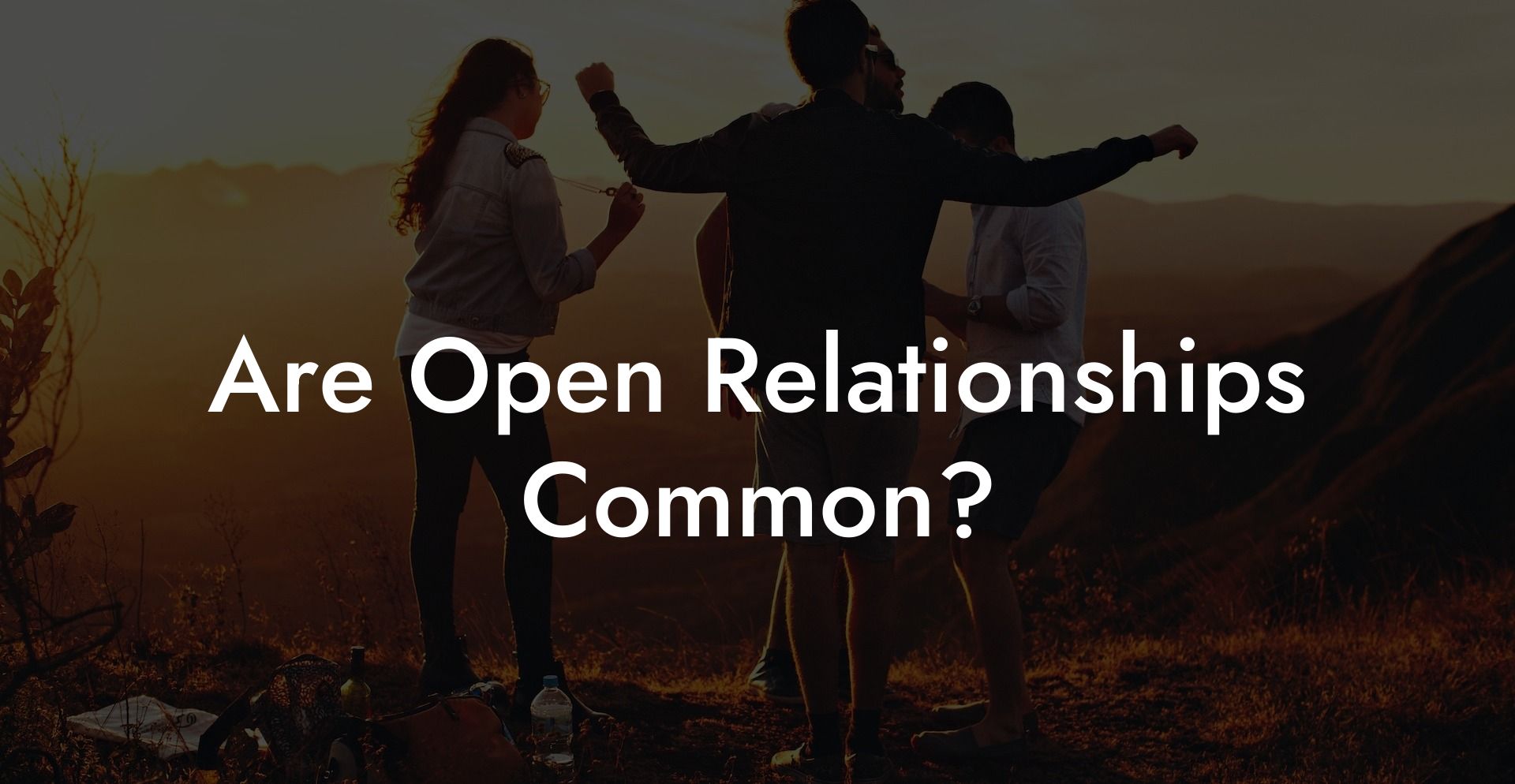As our society continues to evolve and adapt, we are constantly challenging traditional norms and redefining relationships. The conversation surrounding committing to one person for life is shifting towards greater acceptance and understanding of different relationship structures, like open relationships. But just how common are open relationships in today's society? In this detailed exploration, we delve into the prevalence of open and non-monogamous relationships, giving you a broader understanding of this growing phenomenon that has an impact on an increasing number of lives.
Are Open Relationships Common Table of Contents
Open relationships, also known as non-monogamous relationships, are those where both partners agree to engage in sexual and/or emotional relationships with other people. This type of relationship can take various forms, including polyamory (having multiple romantic partners), swinging, and casual dating with multiple partners. Open relationships have gained a notable amount of public attention and acceptance in recent years, but their prevalence is still a subject of curiosity and debate.
To truly understand the commonality of open relationships, we must first consider the generational shift in relationship perspectives. A 2016 study published in the Journal Archives of Sexual Behavior found that younger people are more likely to report engaging in non-monogamous relationships than their older counterparts. According to the study, around 20%-30% of young adults (aged 18-29) reported ever having participated in an open relationship, while only 11% of those aged 30 and older had similar experiences. This shift in relationship attitudes can be attributed to the increased exposure to alternative forms of relationships, as well as the decline in the traditional "nuclear family" structure.
However, it is important to note that these numbers are not definitive. A further study from 2020 published in the Journal Frontiers in Psychology researched how representative these findings were in the general American population. Results suggested that around 4% of individuals within the study had participated in an open relationship, with 17%-20% of those identifying as LGBTQ+ having engaged in some form of non-monogamy.
Open Relationships Example
Consider the example of Anne and John, who have been together for five years but found their passion for one another dwindling. As they genuinely care for each other and enjoy their shared life, they decided to open their relationship to new experiences and sexual partners. They discovered that these new encounters revitalized their connection to one another, and their relationship became stronger and more honest through openness and communication.
So, are open relationships common? While definitive numbers are still a matter of statistics and personal experiences, there is no denying that open relationships are becoming more accepted and widespread in today's society. As we continue to challenge traditional relationship norms and explore alternative structures, it is crucial to stay informed and keep an open mind. If you enjoyed this exploration into the world of non-monogamy, share this post and discover more insightful guides on The Monogamy Experiment. Only through understanding and acceptance can we create a world that embraces the diverse connections in our lives.













